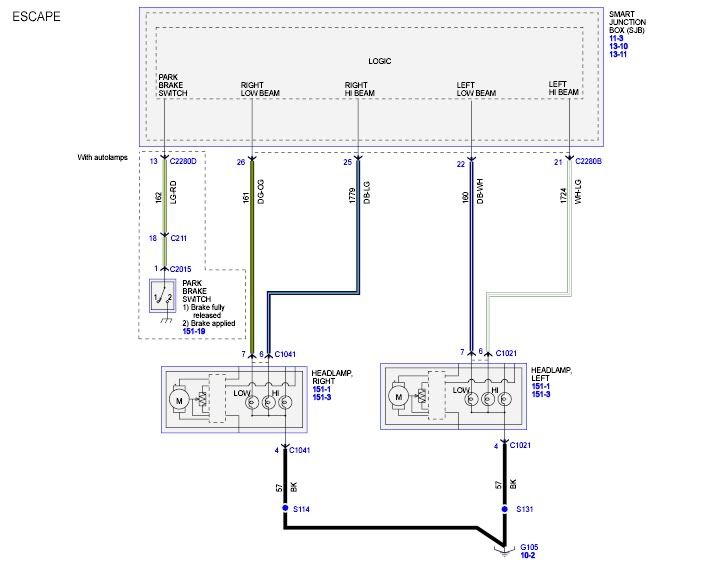When it comes to understanding the electrical system of your 2005 Ford Escape, having a clear and accurate wiring diagram can be incredibly helpful. The 2005 Ford Escape Headlight Wiring Diagram is a detailed schematic that outlines the connections and components of the headlights in your vehicle. This diagram is essential for anyone looking to understand, repair, or modify the headlight wiring in their Ford Escape.
Why are 2005 Ford Escape Headlight Wiring Diagrams essential?
- Provide a visual representation of the headlight wiring system
- Show the connections between different components
- Help troubleshoot electrical issues
- Assist with modifications or upgrades
How to read and interpret 2005 Ford Escape Headlight Wiring Diagrams effectively
Reading a wiring diagram can seem daunting at first, but with a bit of practice, it becomes easier to understand. Here are some tips on how to interpret a 2005 Ford Escape Headlight Wiring Diagram:
- Start by identifying the components and connections labeled on the diagram
- Follow the lines to see how each component is connected
- Pay attention to color codes, symbols, and labels for clarity
- Refer to the legend or key for any terms or abbreviations you may not understand
How 2005 Ford Escape Headlight Wiring Diagrams are used for troubleshooting electrical problems
Wiring diagrams are invaluable tools when it comes to troubleshooting electrical issues in your vehicle. Here’s how you can use a 2005 Ford Escape Headlight Wiring Diagram for troubleshooting:
- Identify the source of the problem by following the wiring diagram
- Check for continuity, voltage, or resistance at various points in the circuit
- Compare the actual wiring in your vehicle to the diagram to pinpoint any discrepancies
- Use the diagram to trace the flow of electricity and isolate the issue
Importance of safety when working with electrical systems
When dealing with electrical systems, safety should always be the top priority. Here are some safety tips and best practices to keep in mind when using wiring diagrams:
- Always disconnect the battery before working on any electrical components
- Use insulated tools to prevent electrical shocks
- Avoid working on wiring in wet or damp conditions
- Double-check connections and wiring before reapplying power
2005 Ford Escape Headlight Wiring Diagram
2005 Ford Escape Headlight Wiring Diagram – Wiring Diagram

2005 Ford Escape Headlight Wiring Diagram – Merge Wiring

2005 Ford Escape Wiring Diagram Pics – Faceitsalon.com

Ford Headlight Wiring Colors

2005 ford escape pcm wiring diagram

2005 Ford F 150 Headlight Wiring Schematic | Simplythebestscripts
